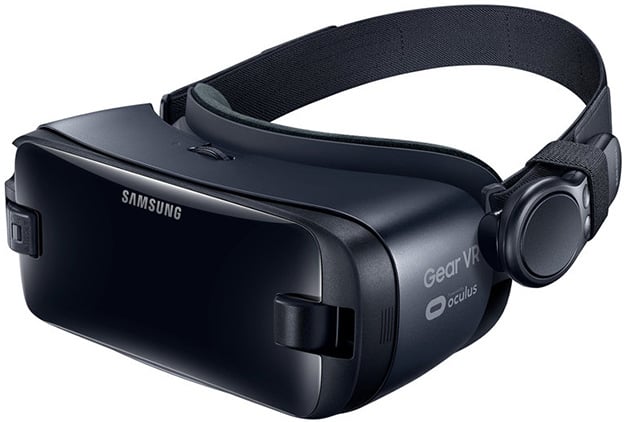ZeniMax Files Suit Against Samsung For Gear VR Tech After $500 Million Victory Over Oculus
ZeniMax scored a big payday as a result of its lawsuit against Oculus, ultimately winning a $500 million award from the Facebook-owned VR company and its co-founders Palmer Luckey and Brendan Iribe. Now ZeniMax is turning its attention to Samsung and its Gear VR headset, claiming that the company is profiting from Oculus technology that was first developed at ZeniMax.
Samsung often advertises its Gear VR as being powered by Oculus, and therein lies the trouble. According to the lawsuit, Samsung either knew or should have known that the technology used in its Gear VR headset was developed at ZeniMax and misappropriated by Oculus executive John Carmack, whose company id Software was acquired by ZeniMax in 2009. Three years after the acquisition, ZeniMax says it provided Palmer Luckey and his company Oculus VR with access to its VR-related IP under the protection of a binding non-disclosure agreement (NDA).

"To establish its VR business for its own commercial gain, Oculus breached the NDA, violated ZeniMax's intellectual property rights, and exploited ZeniMax's VR technology. Samsung, which had desired to release a mobile VR headset and sell greater quantities of its mobile devices, was aware, or reasonably should have been aware, that Oculus acquired its VR technology through this breach of the NDA and in violation of ZeniMax's intellectual property rights. Despite this awareness, Samsung nonetheless obtained and used ZeniMax's VR technology from Oculus, without ZeniMax's consent," the lawsuit states.
According to the lawsuit, Carmack formulated an "attack plan" with Matt Hooper, a former ZeniMax employee who had been fired by the company. Carmack and Hooper allegedly met in id Software's offices after hours to "talk about Oculus." The lawsuit further alleges that Hooper went into ZeniMax's offices to examine confidential materials.
"Later that night, Hooper emailed his contacts at Oculus disclosing that he and Carmack formulated an 'attack plan' for the mobile VR work that they would undertake together at Oculus, and which Oculus would subsequently provide to Samsung. Hooper’s presence in ZeniMax’s offices was not disclosed by Carmack and was only discovered in a review of security tapes," the lawsuit adds.
In its lawsuit against Samsung, ZeniMax is seeking unspecified damages. The company is also suing for profits resulting fro infringing works, a "reasonable royalty," court costs, attorney fees, and more.
Samsung often advertises its Gear VR as being powered by Oculus, and therein lies the trouble. According to the lawsuit, Samsung either knew or should have known that the technology used in its Gear VR headset was developed at ZeniMax and misappropriated by Oculus executive John Carmack, whose company id Software was acquired by ZeniMax in 2009. Three years after the acquisition, ZeniMax says it provided Palmer Luckey and his company Oculus VR with access to its VR-related IP under the protection of a binding non-disclosure agreement (NDA).

"To establish its VR business for its own commercial gain, Oculus breached the NDA, violated ZeniMax's intellectual property rights, and exploited ZeniMax's VR technology. Samsung, which had desired to release a mobile VR headset and sell greater quantities of its mobile devices, was aware, or reasonably should have been aware, that Oculus acquired its VR technology through this breach of the NDA and in violation of ZeniMax's intellectual property rights. Despite this awareness, Samsung nonetheless obtained and used ZeniMax's VR technology from Oculus, without ZeniMax's consent," the lawsuit states.
According to the lawsuit, Carmack formulated an "attack plan" with Matt Hooper, a former ZeniMax employee who had been fired by the company. Carmack and Hooper allegedly met in id Software's offices after hours to "talk about Oculus." The lawsuit further alleges that Hooper went into ZeniMax's offices to examine confidential materials.
"Later that night, Hooper emailed his contacts at Oculus disclosing that he and Carmack formulated an 'attack plan' for the mobile VR work that they would undertake together at Oculus, and which Oculus would subsequently provide to Samsung. Hooper’s presence in ZeniMax’s offices was not disclosed by Carmack and was only discovered in a review of security tapes," the lawsuit adds.
In its lawsuit against Samsung, ZeniMax is seeking unspecified damages. The company is also suing for profits resulting fro infringing works, a "reasonable royalty," court costs, attorney fees, and more.

